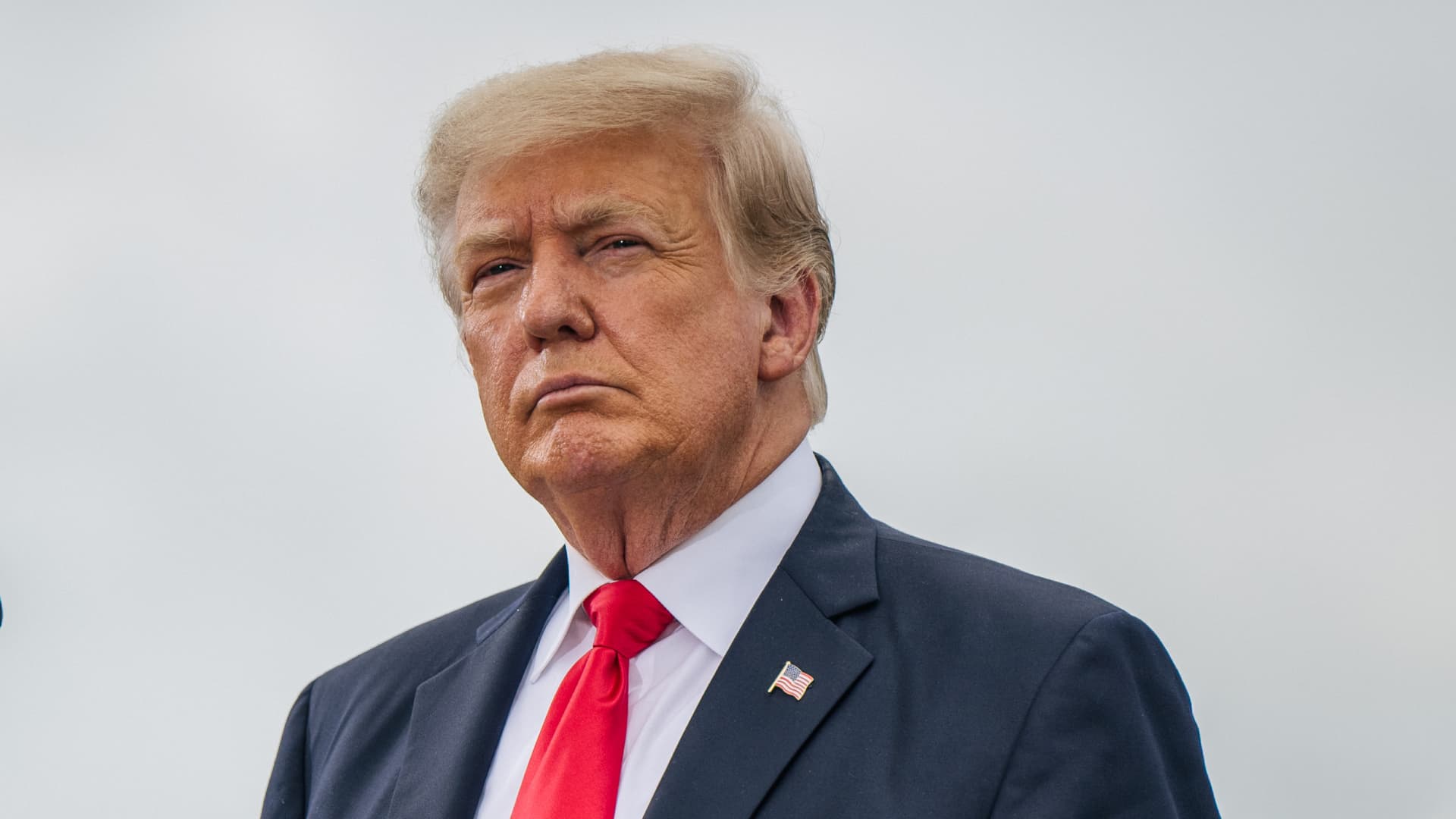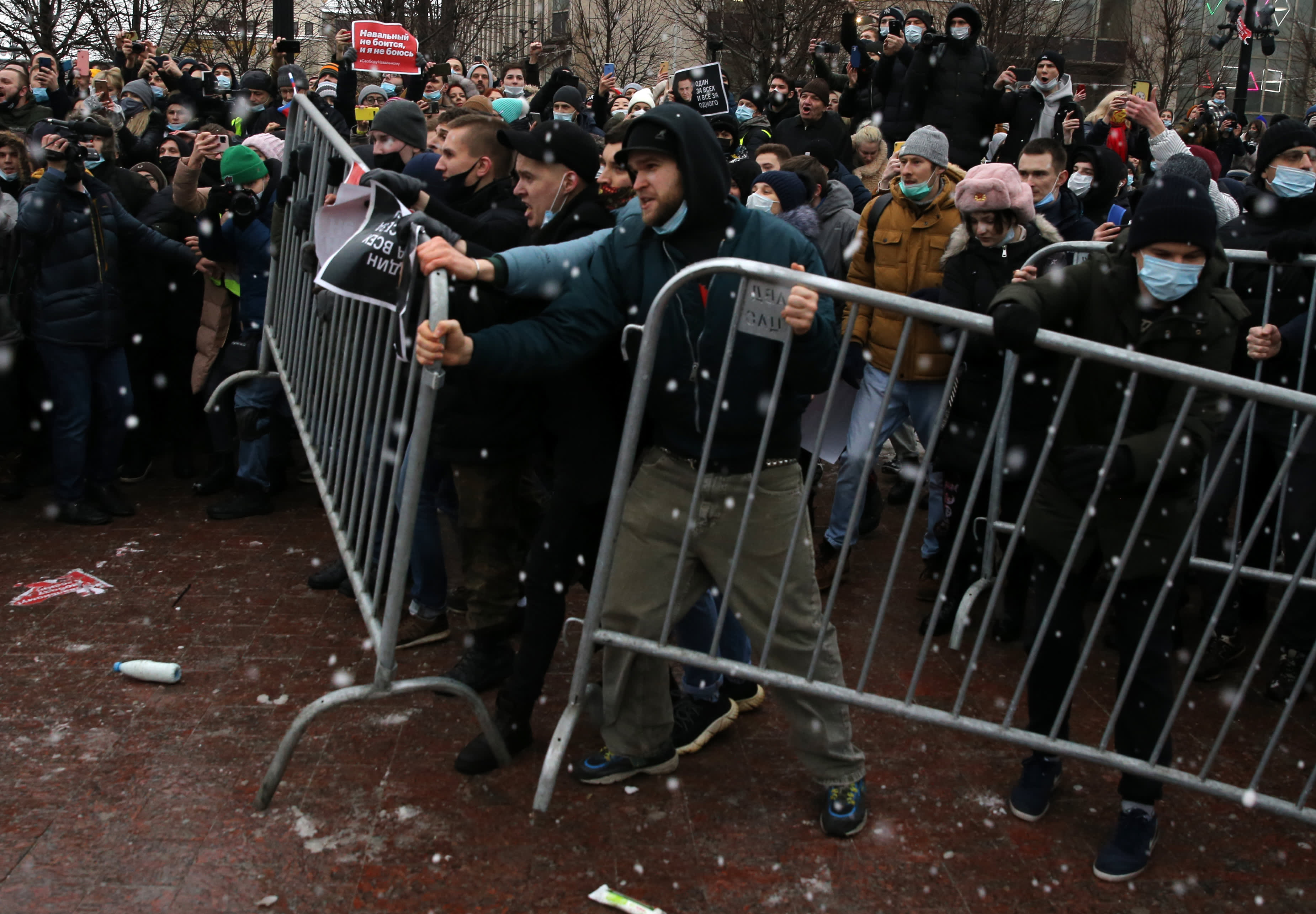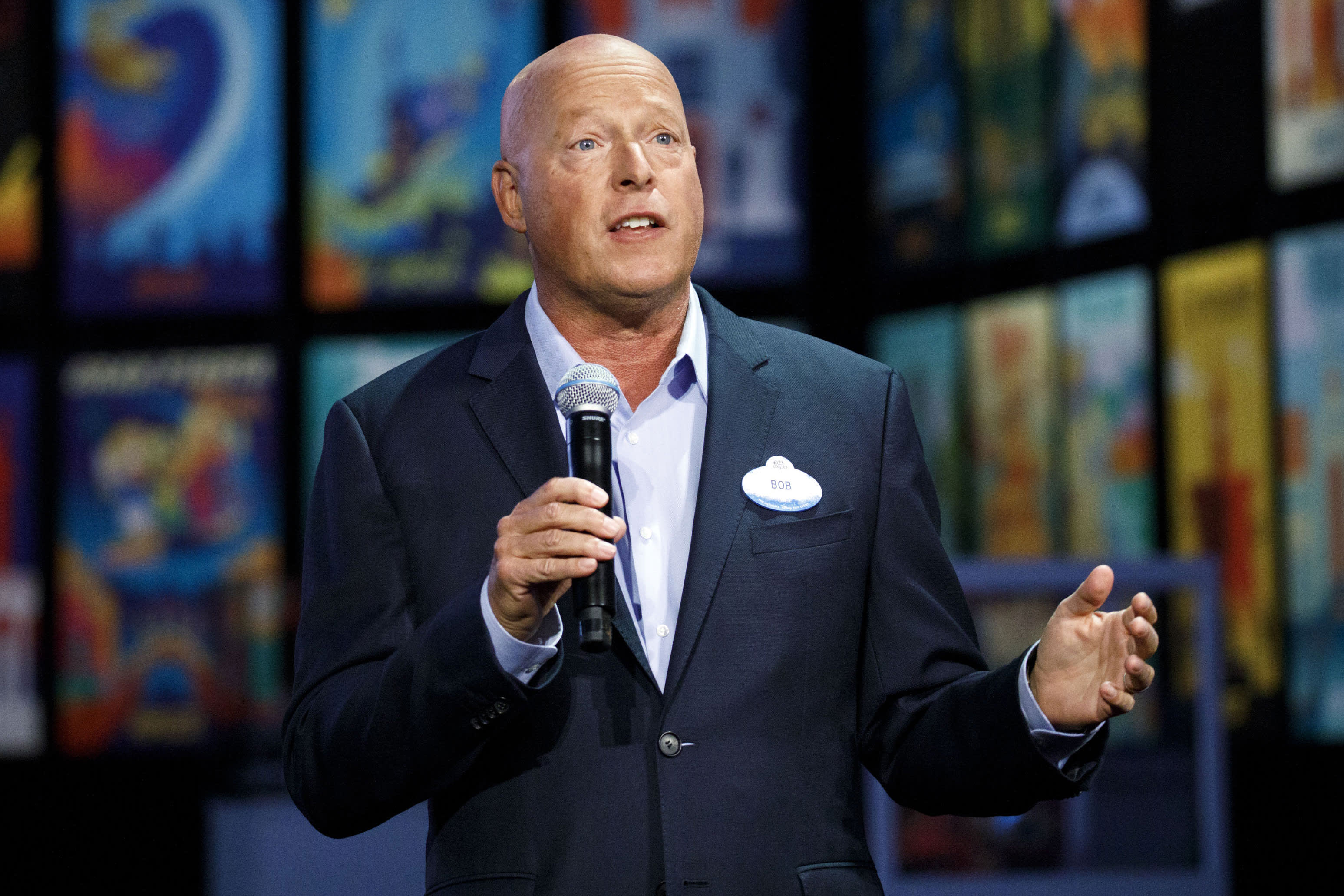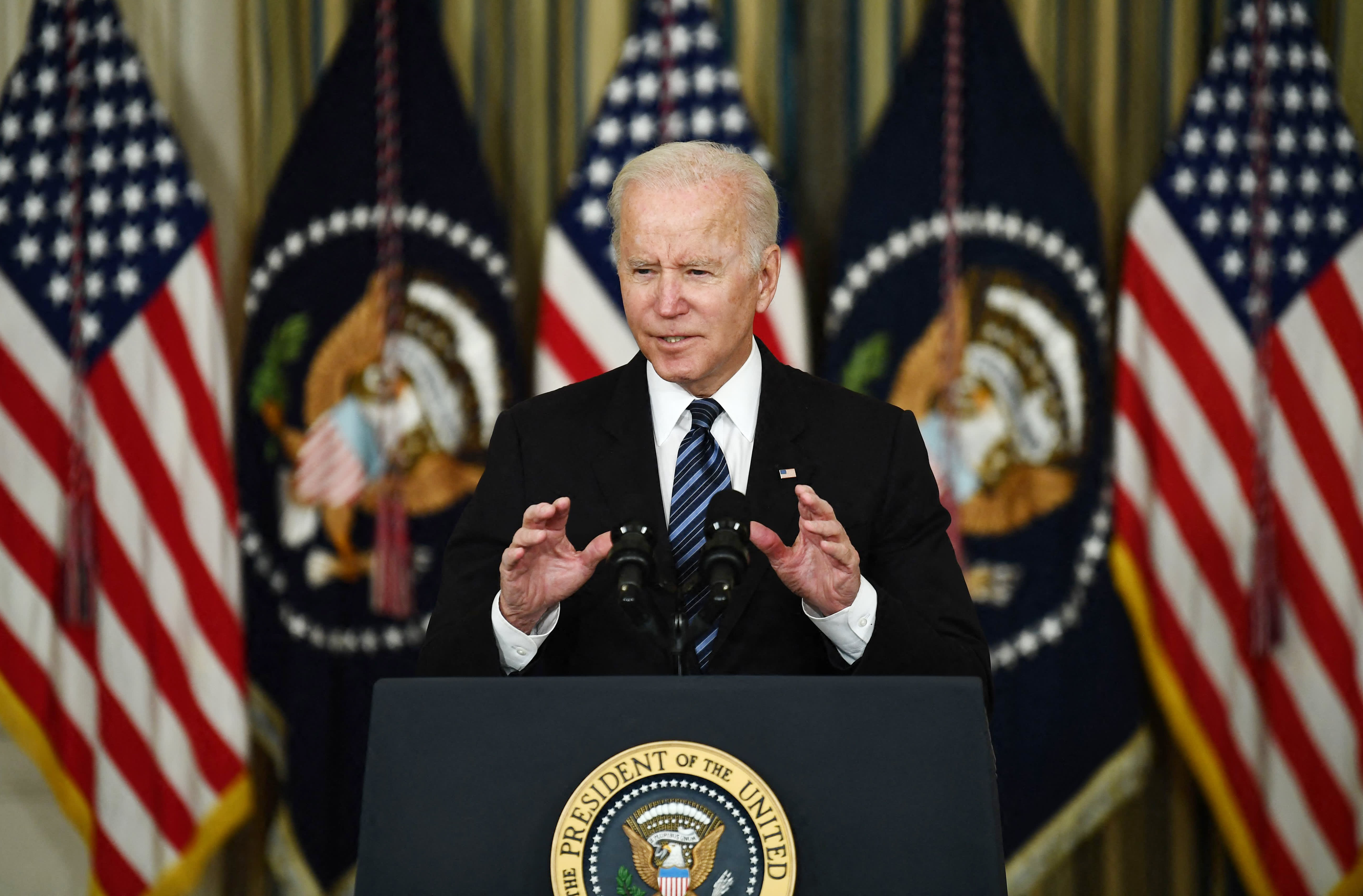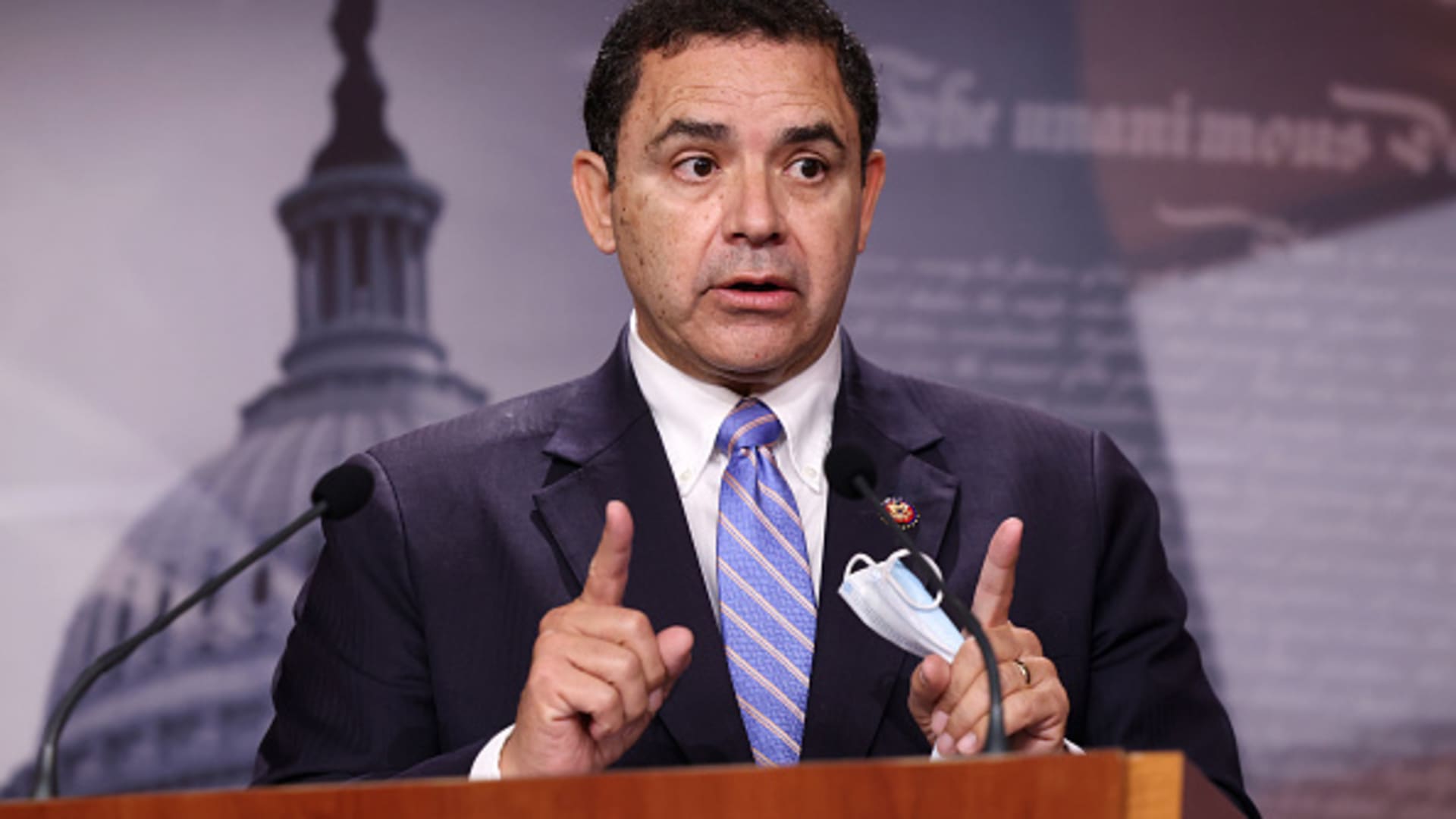France's liberal base is aging fast. Macron now needs to win over angry younger voters
The outcome of the first round of France's presidential election Sunday was a stark awakening for the incumbent leader.

A woman walks past damaged electoral posters of French presidential election for the En Marche ! (Onwards !) movement Emmanuel Macron and President of the National National Front (FN) President Marine Le Pen, candidates for the French presidential election on May 04, 2017 in Paris, France.
Chesnot | Getty Images
While Emmanuel Macron might have breathed a sigh of relief that voting wasn't closer on Sunday night, digging deeper into the election data shows a worrying trend for the French president.
The outcome of the first round of France's presidential election Sunday was a stark awakening for the incumbent leader. Visibly shaken, the center-right former investment banker addressed supporters after coming out ahead of far-right opponent Marine Le Pen by five percentage points.
"Make no mistake, nothing is decided," Macron told the crowd at a rally Sunday night. "Let's be humble, determined … I want to extend my hand to all those who want to work for France."
The result, which saw Macron take 28.3% and Le Pen take 23.3% of the vote and set a runoff election between the two on April 24, means much is at stake not just for France but Europe as a whole, for which the candidates have dramatically different visions.
This photograph taken in Toulouse, southwestern France on April 10, 2022 shows screens displaying TV shows showing the projected results after the close of polling stations in the first round of the French presidential election.
Lionel Bonaventure | Afp | Getty Images
In third place was far-left socialist candidate Jean-Luc Melenchon with 21% of the vote, followed by far-right newcomer Eric Zemmour with 7.2%, whose anti-immigrant comments have made Le Pen look moderate. Le Pen and Macron must now attempt to win over as many of those voters as they can before the final vote in two weeks' time.
Facing a war on Europe's eastern flank the scale of which has not been seen on the continent since World War II, and the highest inflation levels in decades, the stakes for France could hardly be higher.
And in a striking contrast from political trends in other parts of the Western world, older French voters, particularly those above 70, are more liberal while younger voters are increasingly attracted to the far left and right.
Anger, disillusionment among young voters
According to polling data from Ipsos, Macron only came out on top among voters over the age of 60 and Melenchon and Le Pen received a larger share of the vote from the 18-24 age group. While younger people in France tend to vote less, which may in this case bode well for Macron, he will still have to appeal to a more left-leaning audience in order to capture many of those votes for the runoff.
Data from polling group Harris Interactive showed the hard-left Melenchon won the biggest chunk of voters aged 18-24 with 34.8% of their votes, with Macron and Le Pen following with 24.3% and 18% of that vote, respectively. Le Pen took the largest proportion of voters aged 25-49 at 30%.
She also came ahead among 35-49 year olds with 28.8% of that vote. Macron only beat his rivals among the elderly, winning 37.5% of voters over the age of 65 and 28% among 50-64 year olds.
More so than reflecting a shift in social values, some analysts say that much of the younger electorate's lurch to the far right and far left reveals the appeal of economic populism espoused by Le Pen and Melenchon, and a rejection of the globalism of the status quo.
With Macron facing a nationwide cost of living crisis and a widespread belief in the country that he's a "president of the rich," his pitch to younger voters and those further out on the political spectrum is looking far more challenging than he may have previously expected.
The surge in popularity of candidates at the extreme ends of the spectrum "is a manifestation of anger towards the lost years of their life due to the Covid pandemic and government lockdowns; part of it is an anti-establishment positioning against the French government," Brussels-based international political affairs expert Julien Hoez told CNBC.
"On top of this, there's the generational, economic, employment and cultural stressors across French society which have been picked up and weaponized by parties such as the RN and LFI," Hoez said, referencing Le Pen's National Rally and Melenchon's La France Insoumise.
Bread-and-butter issues
Le Pen, who has softened her image and that of her party, National Rally, in recent years, has shifted from a focus on immigration and national identity to bread-and-butter issues like the cost of living. And with inflation in the euro area at its highest ever, her message is resonating.
According to a poll by Ipsos published on April 10, purchasing power and the cost of living is the single most important issue for 58% of voters and a clear majority within every age group except for those 18 to 24, for whom the environment ranks first.
Le Pen has appealed to voters with proposals of tax cuts on energy, prices of which are at historic highs thanks to inflation and Russia's invasion of Ukraine. Macron meanwhile has pledged some tax cuts but is also pushing for an increase in the retirement age and cut to public sector employment – something that won't find much support among the left-wing voters whose support he now needs.
Macron wants to raise the retirement age from 62 to 65 and is the only candidate aiming to abolish the special pensions system in place for some state company employees, which includes major benefits and a lower retirement age. Zemmour wants to raise the retirement age to 64, and Le Pen plans to leave it unchanged, but bring it down to 60 for those who started working at the age of 20 or younger. Melenchon wanted to lower it to 60.
Zemmour, in a speech following Sunday's elections, urged his supporters to give their vote to Le Pen, while Melenchon beseeched his supporters to vote for anyone but her. Still, he did not go so far as to endorse Macron, something the sitting president would have appreciated.
The Ukraine effect
Macron has been pushing for European unity at a crucial time when the EU faces an aggressive Russia. His focus on the war in Ukraine initially gave him a large advantage in polls, but just in the final fortnight before the first vote, the focus has shifted domestically to the cost of living crisis.
Le Pen has been able to exploit this, pushing her economic promises to the forefront as her anti-NATO and anti-EU stance and friendly relationship with Russian President Vladimir Putin have come under scrutiny.
But make no mistake, a shift in topic focus doesn't mean a move away from the issues that made Le Pen a controversial firebrand in the first place, said Mujtaba Rahman, head of the Europe desk at political risk consultancy Eurasia Group.
Le Pen "is no more moderate or reasonable today than she has been historically," he said in a note ahead of the vote. "She remains an extreme right force in French politics."

 KickT
KickT 







